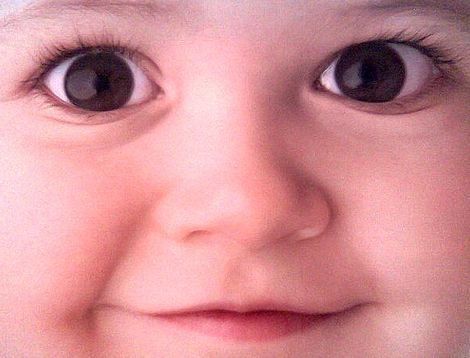Digital Babies? ‘GenePeeks’ Start-Up To Screen Prospective Parents For Best Baby Genes

What if you could digitally mix your genes with the genes of prospective partners to find out which match is best for producing healthy babies?
A New York start-up, GenePeeks, is working to do just that. The company hopes to reduce the risk of babies being born with rare genetic diseases, providing prospective couples with actionable options to ensure they can raise a healthy family. The GenePeeks team consists of Lee M. Silver, a molecular biology professor at Princeton, who has published numerous research articles on genetics and computational modeling, as well as co-founder Anne Morriss, who earned her MBA from Harvard Business School. Morriss’ son was born with a rare genetic condition known as MCADD (medium-chain acyl-CoA dehydrogenase deficiency) that may have been predicted had she had technology like GenePeeks at her disposal.
"We are just in the business right now of giving prospective mothers, who are using donor sperm to conceive, a filtered catalogue of donors based on their own underlying genetic profile," Morriss told BBC News. "We are filtering out the donor matches with an elevated risk of rare recessive paediatric conditions."
GenePeeks has partnered with the Manhattan Cryobank, a sperm bank, and has a pending patent on its technology. GenePeeks isn’t the first to offer a form of preconception test to would-be parents. A California-based company called Consyl, for example, screens parents for a number of genetic disorders including spinal muscular atrophy, ataxi-telangiectasia, and Fragile X syndrome.
“It’s great to cure something…but if you can prevent it before anyone has to experience any pain or suffering, that’s just worth so much more,” a mother who used Consyl, says on a video on its website.
GenePeeks founders say they were able to use a superior system called "targeted exon sequencing" for DNA analysis, and they can scan for some 600 known single-gene recessive conditions. They hope to expand the screening to be able to scan for an even larger amount of conditions. Silver told the BBC that with the DNA sequence from the two potential parents, GenePeek can simulate reproduction with virtual eggs and sperm, then put those together to create a hypothetical child genome.
"Then we can look at that hypothetical genome and — with all the tools of modern genetics — determine the risk that the genome will result in a child with disease,” he told the BBC. “We're looking directly for disease and not carrier status. For each pair of people that we're going to analyse, we make 10,000 hypothetical children."



























